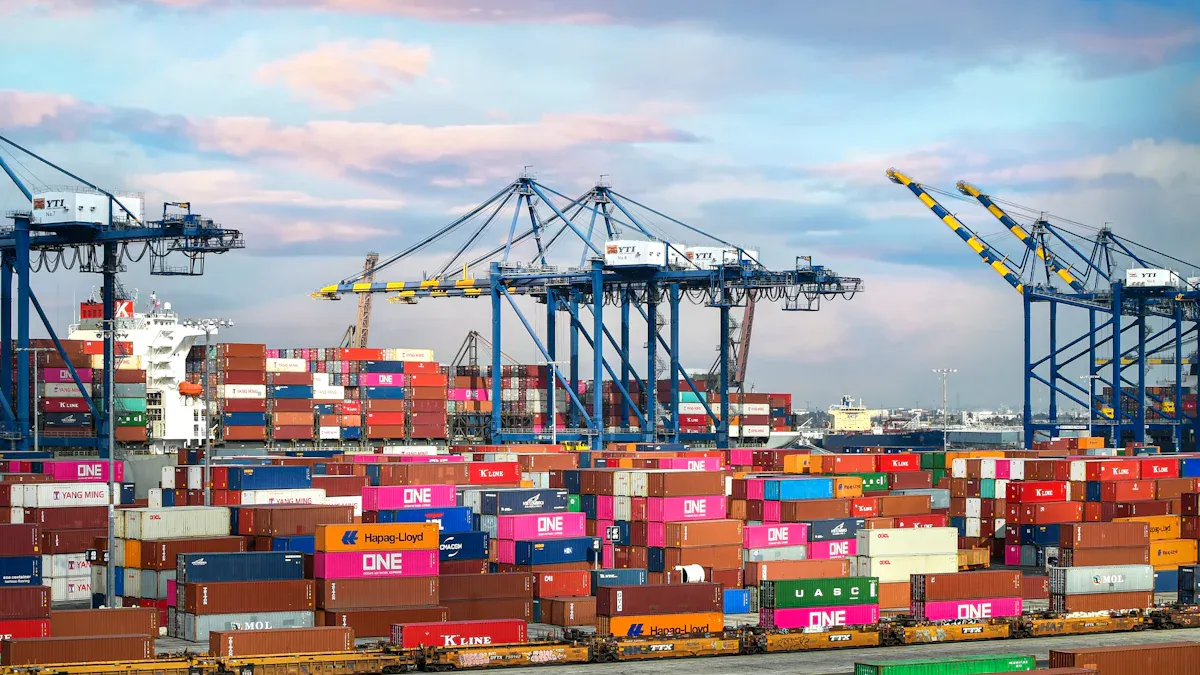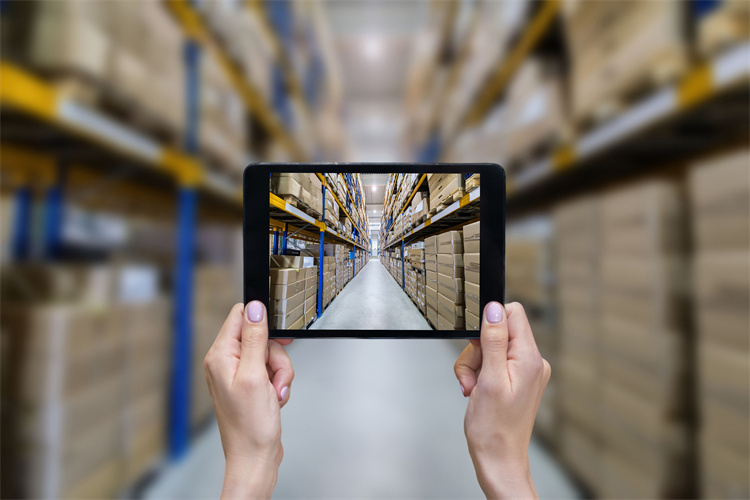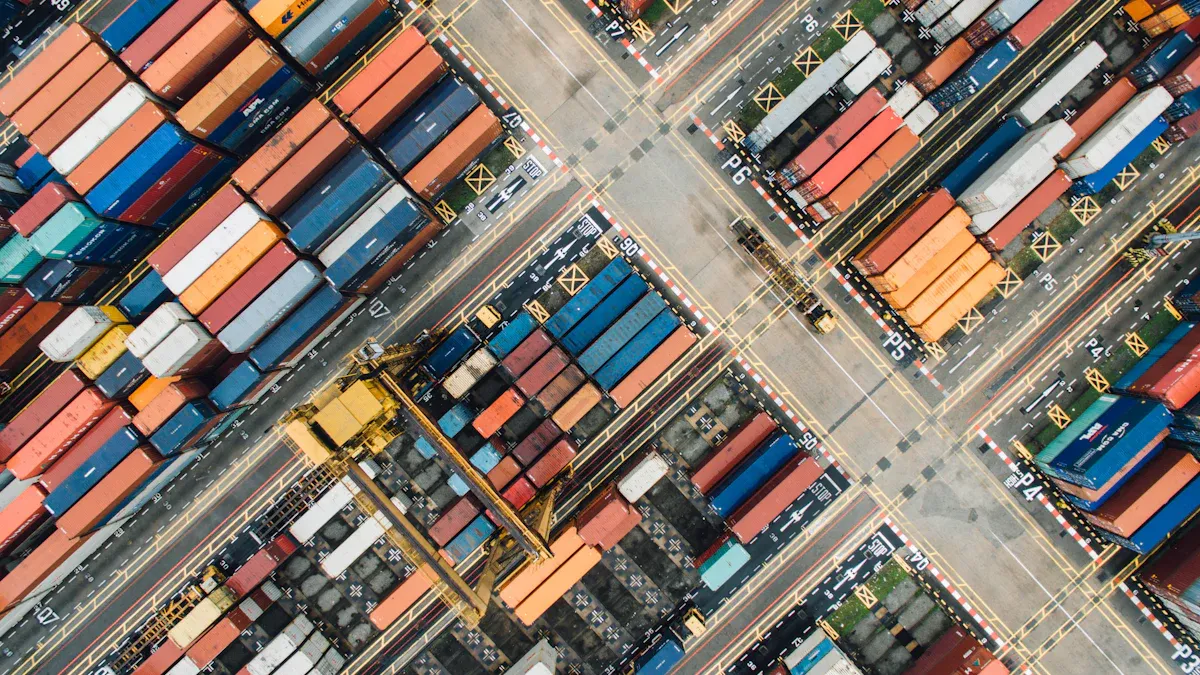Exploring the Definition of Logistics in 2025

Logistics in 2025 revolves around managing the flow of goods, services, and information to meet customer needs efficiently. You will notice its transformation driven by cutting-edge technologies and global challenges.
Technological advancements like AI and autonomous vehicles optimize routes and inventory, reducing waste.
Global challenges such as economic uncertainty and labor shortages demand innovative solutions.
Logistics plays a pivotal role in ensuring businesses deliver value while adapting to these changes.
Key Takeaways
Logistics in 2025 is about managing goods, services, and data well.
Tools like AI and robots help by planning better and saving money.
Being eco-friendly matters; using green methods helps the planet and brands.
Understanding Logistics and Its Core Functions in Supply Chain Management
Definition and Scope of Logistics
Logistics involves managing the movement of goods, services, and information to meet customer demands efficiently. It plays a vital role in the supply chain by ensuring that products reach the right place at the right time. The logistics process includes activities such as order processing, transportation, warehousing, and inventory management. These components work together to optimize the supply chain process, reduce costs, and improve customer satisfaction. Strategic planning and risk management also fall under logistics management, helping you adapt to market trends and challenges.
Key Functions: Transportation, Warehousing, and Inventory Management
Transportation ensures goods move from origin to destination efficiently. Using transportation management systems (TMS), you can optimize routes, reduce costs, and improve delivery accuracy. Warehousing supports the supply chain by storing goods securely and preparing them for distribution. Advanced systems track inventory and streamline order fulfillment. Inventory management connects transportation and warehousing, ensuring stock levels meet demand while minimizing waste. Technologies like RFID enhance tracking and visibility, helping you maintain smooth supply chain logistics.
JUSDA's Role in Enhancing Logistics Efficiency
JUSDA integrates advanced technologies to improve logistics efficiency. Its JusLink platform provides real-time supply chain visibility, enabling better decision-making. With over 2.5 million square meters of warehouse space globally, JUSDA optimizes storage and distribution. Its transportation logistics solutions ensure timely deliveries, while inventory management tools reduce waste and costs. By leveraging innovation, JUSDA helps you achieve seamless supply chain operations.
Logistics vs. Supply Chain Management: Key Differences
Defining Supply Chain Management
Supply chain management involves overseeing the entire process of delivering a product or service from the supplier to the customer. It connects various business processes, including procurement, production, and distribution, to create a competitive advantage. Unlike logistics, which focuses on the movement of goods, supply chain management takes a broader approach. It emphasizes collaboration across departments and aims to streamline operations for maximum efficiency.
A comparison between supply chain management and logistics highlights their differences:
Aspect | Supply Chain Management | Logistics |
|---|---|---|
Scope | Encompasses the entire process from supplier to customer | Focuses on the movement of goods |
Focus | Competitive advantage through linking business processes | Meeting customer requirements |
Management Strategies | Collaborative network across departments | Relies on technology for efficiency |
Historical Context | A relatively new term | Emerged from military roots |
Relationship | An activity within the supply chain | Supplements supply chain management |
How Logistics Fits Within the Supply Chain Framework
Logistics plays a crucial role in the supply chain by ensuring the smooth movement of goods and information. It integrates resources and processes strategically to eliminate inefficiencies. By breaking down barriers between siloed operations, logistics creates a seamless flow of activities. This alignment enhances efficiency and reduces friction, making the supply chain more resilient.
You can think of logistics as the engine that powers the supply chain. It ensures that transportation, warehousing, and inventory management work together harmoniously. This integration allows businesses to meet customer demands while minimizing costs and delays.
JUSDA's Integrated Supply Chain Solutions
JUSDA offers advanced solutions that bridge the gap between logistics and the broader supply chain. Its JusLink platform harmonizes operations by providing real-time visibility and collaboration tools. With over 2.5 million square meters of warehouse space worldwide, JUSDA ensures efficient storage and distribution. The platform also integrates transportation and inventory management, enabling you to optimize your supply chain operations. By leveraging cutting-edge technologies, JUSDA helps businesses achieve seamless and cost-effective logistics solutions.
The Importance of Logistics in Business Success
Enhancing Efficiency and Reducing Costs
Efficient logistics management plays a vital role in reducing operational costs. By using route optimization software, you can significantly cut fuel expenses, with modern systems reducing fuel usage by up to 31%. This directly lowers your business's overall costs. Additionally, implementing strategies like cross-docking minimizes inventory holding costs and reduces warehouse expenses.
Cross-docking supports a leaner supply chain model by enhancing shipping speed and lowering storage needs.
Logistics also optimizes various supply chain aspects, increasing efficiency and ensuring timely and reliable delivery. These improvements allow businesses to reinvest savings into other areas, boosting competitiveness. Lower logistics costs can even enable you to offer products at more attractive prices, giving you an edge in the market.
Improving Customer Satisfaction Through Timely Deliveries
Timely deliveries are essential for building trust and loyalty among your customers. Meeting delivery promises ensures satisfaction and encourages repeat purchases. On the other hand, delays can lead to losing customers and damaging your reputation.
Reliable delivery services not only enhance trust but also foster long-term relationships. Strategic improvements in transportation and distribution can further boost customer satisfaction. When you consistently deliver on time, you create a positive experience that keeps customers coming back.
JUSDA's Warehouse Solutions for Optimized Supply Chain Operations
JUSDA's advanced warehouse solutions streamline supply chain logistics and improve distribution efficiency. With over 2.5 million square meters of global warehouse space, JUSDA ensures secure storage and seamless distribution. Its facilities integrate advanced inventory management systems like JusLink, providing real-time tracking and control.
JUSDA's value-added services, such as picking, packing, and labeling, enhance operational efficiency. These solutions reduce waste, optimize transportation, and ensure timely deliveries. By leveraging JUSDA's expertise, you can achieve smoother supply chain operations and meet customer demands effectively.
Emerging Trends and Technologies in Logistics (2025)

AI and Automation in Supply Chain Logistics
AI and automation are revolutionizing supply chain logistics by enhancing efficiency and streamlining operations. These technologies allow you to manage data more effectively, breaking down silos and refreshing databases. AI-powered tools improve decision-making by analyzing operational data and forecasting demand. For instance, planners can now consider factors like vehicle conditions and traffic to optimize routes.
Automation reduces reliance on manual tasks, accelerating workflows and improving responsiveness. It provides real-time insights into inventory levels and order statuses, helping you anticipate disruptions and address inefficiencies. By minimizing errors and optimizing resource allocation, automation lowers costs and reduces material waste. The global market value of AI in logistics is expected to reach $64 billion by 2030, underscoring its transformative impact on the industry.
Sustainability and Green Logistics Initiatives
Sustainability is becoming a cornerstone of modern logistics. Businesses are adopting green logistics practices to reduce their environmental impact and meet regulatory requirements. Key initiatives include:
Reverse logistics systems for product returns, refurbishment, and recycling.
Packaging optimization using eco-friendly materials to minimize waste.
Modal shifts to environmentally friendly transportation modes like rail or water freight.
Collaborative logistics, where companies share resources to reduce empty vehicle miles.
These practices not only lower your carbon footprint but also enhance your reputation among eco-conscious consumers. By rethinking logistics processes, you can achieve cost savings and operational efficiency while contributing to a greener future.
JUSDA's JusLink Platform for Real-Time Supply Chain Visibility
JUSDA's JusLink platform exemplifies how technology can transform supply chain logistics. This intelligent platform integrates IoT, cloud computing, and big data to provide real-time visibility across the supply chain. With JusLink, you gain access to accurate, up-to-date information on inventory, transportation, and order statuses. This transparency enables you to make informed decisions and respond quickly to potential disruptions.
The platform also enhances collaboration by connecting all stakeholders in the supply chain. Its advanced analytics tools help you identify inefficiencies and implement cost-saving solutions. By leveraging JusLink, JUSDA empowers businesses to optimize their logistics operations and achieve seamless supply chain management.
Real-World Applications of Logistics Trends

Case Study: AI-Driven Route Optimization in E-Commerce
AI-driven route optimization is transforming supply chain logistics by improving delivery efficiency and reducing costs. Companies like Amazon and Domino’s Pizza have successfully implemented AI to enhance their operations.
Company | Description | Results |
|---|---|---|
Amazon | Utilizes AI for dynamic route planning, analyzing delivery addresses and historical data. | Optimizes last-mile delivery, ensuring timely package arrival despite unexpected changes. |
Domino’s Pizza | Employs an AI-driven platform to predict order volume and plan delivery routes. | Reduces delivery times, enhancing customer satisfaction and maintaining brand promise. |
These examples highlight how AI can streamline supply chain logistics, ensuring timely deliveries and improving customer satisfaction. By adopting similar technologies, you can optimize your logistics operations and stay competitive in the evolving market.
Example: Sustainable Packaging Solutions in Retail
Sustainable packaging is becoming a priority in supply chain logistics as businesses aim to reduce their environmental impact. Many brands now use innovative materials and designs to meet consumer demand for eco-friendly options:
Bioplastics and plant-based materials replace traditional plastics.
Post-consumer recycled materials create effective packaging solutions.
Compostable and biodegradable options gain traction as sustainable alternatives.
These practices not only reduce waste but also enhance product appeal and protect goods during transport. By adopting sustainable packaging, you can align with consumer preferences and improve your brand’s reputation.
JUSDA's Warehouse Innovations in Last-Mile Delivery
JUSDA’s warehouse solutions play a critical role in optimizing last-mile delivery within supply chain logistics. With over 2.5 million square meters of global warehouse space, JUSDA ensures efficient storage and distribution. Its advanced inventory management systems, like JusLink, provide real-time tracking and control, enabling you to anticipate and address potential disruptions.
JUSDA also offers value-added services such as picking, packing, and labeling, which enhance operational efficiency. These innovations reduce waste, improve delivery accuracy, and ensure customer satisfaction. By leveraging JUSDA’s expertise, you can achieve seamless last-mile delivery and strengthen your supply chain logistics.

JUSDA Solutions
To provide you with professional solutions and quotations.
Logistics in 2025 emphasizes adapting to uncertainty, sustainability, and innovation. You must invest in advanced systems to optimize operations and meet customer demands. Emerging technologies like AI, IoT, and robotics transform logistics, enhancing efficiency and reducing waste. JUSDA leads this evolution by offering cutting-edge solutions that streamline global trade and elevate customer satisfaction.
See Also
Best Five Logistics Courses to Explore in 2024
Innovative Logistics Technologies Shaping Our Future Journey
Navigating Future Logistics Through Advanced Digital Solutions
Transforming Logistics: How Supply Chain Innovations Change Everything
Artificial Intelligence in Supply Chains: Shaping Future Logistics
